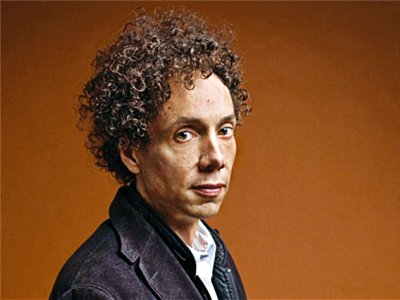
WHY EVERY CHURCH NEEDS A MALCOLM GLADWELL
There is much that is hidden and unobserved in human life and it takes patience and vision to uncover the links that cause us to behave the way we do. Step forward a rare talent who manages this.
The rise of behavioural economics has been a marked trend of the last decade. In a way it is a welcome admission that an entirely rational model for understanding human choice is hopelessly inadequate. Human beings are influenced by a range of irrational factors when they make decisions but economists have been reluctant to accept this because it undermines the precise mathematical equations they construct to predict outcomes.
Behavioural economics provides a looser, more confusing account of human conduct that has been wildly successful in print (Freakonomics, Nudge, for instance). Yet as an academic development it has its critics who feel that less hubris and presumption on the part of economists is in order after they collectively failed to predict the crash of 2008.
The behavioural economists are treading anyway on the turf of Malcolm Gladwell who is one of the most eclectic and unusual thinkers at work in the world today. Gladwell is a polymath who tries to join the dots between discrete disciplines that do not otherwise speak to one another and produces spell-binding accounts of why human beings do what they do in the process. He is responsible for the neologism tipping point – the notion that there is a specific point when ideas and trends find energy in life and spread like wildfire. His discourse on the stickiness of ideas and how some take root in people while others do not gives compelling depth to the parable of the sower. His observations on the power of environment to shape human character and the intuitive ability of experienced people to read a situation without the need to analyse it resonate both with Paul’s account of the moulding of Christian character (Romans 5) and the gift of spiritual wisdom (James 1).
Meanwhile, the place he affords to culture and environment in the making of successful people calls for greater humility among life’s winners. His writing does not come explicitly from a Christian perspective though he confesses to believing in God and a lot of what he says has provoked my thinking about faith.
There is much that is hidden and unobserved in human life and it takes patience and perceptiveness to uncover the links that cause us to behave the way we do. The Church has been blessed with statisticians who, like secular economists, have come up with empirical data to help shape its strategy. They would be among the first to admit that there are many apparently mysterious reasons why trends develop in the life of churches. The ways of God are not easily discernible and Jesus spoke in parables partly to preserve the enigmatic from minds too ready to categorise and therefore master their subject. This elusiveness is one of the most enchanting dimensions to our faith. Yet I can’t help feeling that every church needs a Malcolm Gladwell: someone who has the curiosity and the liveliness to interpret the invisible links in the life of a community that make it what it is; a semi-detached observer with goodwill but without presuppositions who can see what others who are too close to the action cannot.
If you find such a pers
on, let your church leaders know!
POPULAR ARTICLES

Obama's Covert Wars
The use of drones is going to change warfare out of all recognition in the next decades.

Through A Glass Starkly
Images of traumatic incidents caught on mobile phone can be put to remarkable effect.

What Are British Values?
Is there a British identity and if so, what has shaped the values and institutions that form it?


